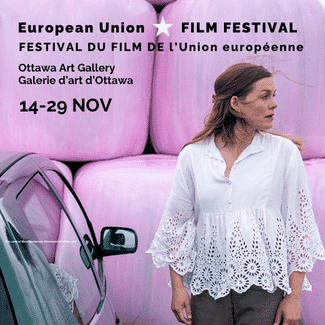One small step for Shohini Ghose, one giant leap for women in STEM. As part of the 2023 Ottawa International Writers Festival, Ghose will speak about her book, Her Space, Her Time: How Trailblazing Women Scientists Decoded the Hidden Universe.
The Ottawa International Writers Festival is committed to the celebration of ideas through literature. The festival sees renowned authors engage with the community about their latest works. Her Space, Her Time sheds light on the advancements made in astronomy from the 19th century to the present day, and our understanding of the universe by the often unsung women heroes of the science world.
A leader in her field, Ghose is a professor of physics at Wilfrid Laurier University and is the first person of colour to be elected president of the Canadian Association of Physicists—just a few accolades on her long list of achievements. Ghose spoke with Apt613 about her role in the world of science education, and how to approach the barriers many women still face in the community.
Ghose says she was inspired to write about women scientists to make up for the lack of representation she experienced as a child. She says this book was like uncovering a secret history, in which women’s contributions were being hidden.
“As a kid, I did not know of any women physicists other than Marie Curie and saw none in my physics textbooks. It made me question whether I belonged in physics and why there were so few women,” says Ghose. “But later when I dug deeper, I discovered a much bigger, almost secret history of physics which involved contributions from women from all over the world—I really wanted to share their inspirational stories with the world.”
Ghose also reveals some of her personal favourite scientists and shares what inspires her the most about these specific trailblazers.
She says Cecilia Payne-Gaposchkin worked in Ghose’s field of quantum physics to discover the composition of stars, and was the first woman to chair any department at Harvard. She also says Bibha Chowdhuri inspires her as they share similar backgrounds and identities, but experienced an all-too-familiar situation that befalls many female researchers.
“[Chowdhuri] was a Bengali woman like me, although I did not know her name when I was a kid studying in Bengal,” says Ghose. “She helped discover two fundamental particles in nature, but the Nobel Prize for one of those discoveries went to a British physicist who built on her work.”
While Ghose and other women like her are active in the field of science research and education, women still face many barriers within the scientific community. Ghose calls for cultural and structural change in order to see significant improvements.
“Women still face inequities in wages, lack of equal resources and funding for their research, lack of recognition of their work, longer time to progress up the career ladder, fewer invitations to give prestigious talks, fewer awards—generally due to longstanding biases about their abilities,” she says. “This requires both policies to remove inequities in the workplace and in the classroom, as well as addressing stereotypes, celebrating role models, and breaking down implicit biases.”
Finally, Ghose addresses some of the biggest misconceptions about science and the scientific community. She says big scientific discoveries are not made by lone geniuses working by themselves.
“In fact, scientific discoveries are made through collaboration, slowly building on past work, and creative thinking by lots of people looking at a problem in multiple different ways,” she says. “Science needs everyone and science is for everyone.”
Shohini Ghose appears as part of the Ottawa International Writers Festival on Saturday, October 28, at 1:30pm at Christ Church Cathedral. Tickets are available online.







